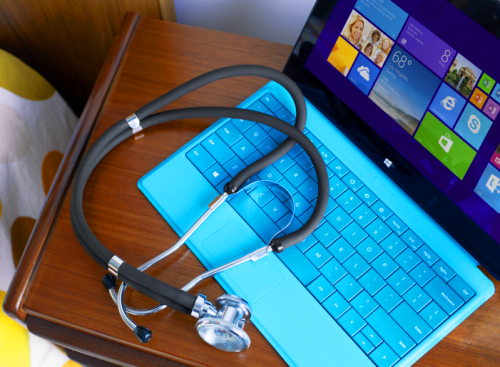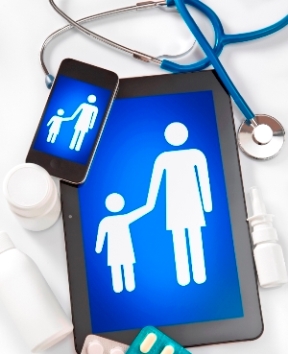Dr. Damodar Bachani, Deputy Commissioner (NCD)-?Ministry of Health & FW
Pre-requisites of Sustainable Healthcare
1.Improve access to healthcare
2.Capacity Building for Healthcare
3.Maintain quality of healthcare
4.Reduce operating costs & OOP expenditure
5.Effective control of common diseases through effective monitoring & surveillance systems
Improving Access to Healthcare
Tele-medicine is one of the best options for delivering healthcare for rural & geographically distant populations
National Rural Telemedicine Network (NRTN)
Tele-consultation, Tele-follow-ups and m-health applications
Level-1: Sub-Centres, Primary Health Centres/ Community Health Centres connected to a District Hospital
Level-2: District Hospital connected to a State Hospital / National Super Specialty Hospital/Medical Colleges
Level-3: State Hospital/ National Super Specialty Hospital/ Medical College connected to each other
Level-M: Mobile Telemedicine Units covering few villages connected to nearest PHC / CHC or directly to District Hospital
Webinars for CME
Capacity Building of health team
Electronic health records (using Aadhar)
e-referral systemService DeliveryElectronic prescriptions
e-procurement ?& logistic management
mTechnology for public awareness
e-dispensing of medicines
Follow-up services
Optimal utilization of specialists
Helplines
Online Medical Supply
Drugs & Vaccines Distribution Management System (DVDMS)
DVDMS is a web based Supply Chain Management System developed by CDAC towards adapting technology to improve supply chain of the drugs, sutures and surgical items
Tamil Nadu, Rajasthan, Karnataka, Gujarat, Maharashtra, Assam, Punjab, Madhya Pradesh and Chhattisgarh have implemented IT backed Drugs & Logistic Management Systems across the State.
Support for operationalizing the software is also provided to States who wish to avail funding for its implementation under National Health Mission
Under NHM, financial assistance is provided for provision of free generic/essential drugs to those who access public health facilities.
Reduce operating costs & Out-of-pocket expenses
Reduction of costs on laboratory tests & drugs
Less number of visits to higher levels of care
Reduction in travel & other indirect costs (loss of wages, food, stay etc.)
Reduction in costs on managing complications
Effective Control of common diseases through effective monitoring & surveillance systems
Currently around 1.79 lakh health facilities are reporting data every month through HMIS
Ease of accessibility & use of data
Better monitoring and evaluation of health programs
Provide inputs to health policy formulation & interventions
Improved capability of data reporting and analysis
Supporting Epidemiological & Disease surveillance
Performance 2013-14
RCH
2.90 Crore pregnant women registered for Ante Natal Care
2.18 Crore pregnant women received three ANC check-ups
2.32 Crore pregnant women received 100 Iron Folic Acid tablets
2.12 Crore live births
Population Control
43.04 Lakh sterilizations conducted
51.99 Lakh IUCD insertions
Medical Services provided
104.97 Crore outpatient consultations
4.89 Crore patients admitted
36.05 Lakh major operations
71.2 Lakh minor operations
4.95 Crore Haemoglobin tests done








